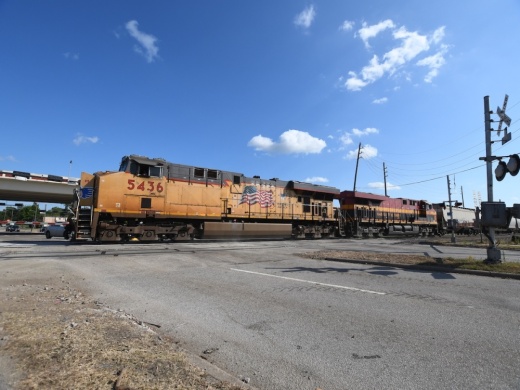The council passed a resolution during its Oct. 18 meeting authorizing the city to apply for federal grant funding to cover its Intelligent Transportation Systems Railroad Monitoring, Communication and Notification System Project. The project focuses on upgrading hardware for the city’s existing railroad monitoring system and lays the foundation for connected vehicles to support traffic operations.
The Union Pacific Railroad track adjacent to the US 90A corridor serves approximately 32 trains every day, according to agenda documents. With the proposed merger of Canadian Pacific Railway and Kansas City Southern Railway, train traffic is anticipated to increase as US 90A is a major route to the south.
The existing railroad monitoring system can detect train speed, direction and length at six locations along the US 90A corridor. The project aims to expand this system to more locations within Sugar Land and eventually Fort Bend County as well as enhance how the city shares railroad information with roadway users to improve congestion and emergency response times.
The ITS Railroad Monitoring, Communication and Notification System Project is estimated to cost $2.05 million. In total, $2.28 million is available for the project, including $1.25 million allocated in Sugar Land’s fiscal year 2021-22 capital improvement plan and $1.03 million allocated in the 2020 Fort Bend County Mobility Bond.
On Sept. 19, the U.S. Department of Transportation announced the opening of the FY 2022-23 round of the Strengthening Mobility and Revolutionizing Transportation Grants Program, established by the Bipartisan Infrastructure Law. The SMART Grants Program exists to conduct demonstration projects focused on advanced smart technologies and systems to improve transportation efficiency and safety.
The program includes two stages: Stage 1 Planning and Prototyping Grants and Stage 2 Implementation Grants. Stage 1 projects can receive up to $2 million per project, and Stage 2 projects can receive up to $15 million per project.
Sugar Land is applying for a Stage 1 Planning and Prototyping Grant, which will enable it to continue testing and prototyping equipment to determine the best solution before investing in system upgrades. Stage 1 projects for SMART funding will be evaluated based on technical merit criteria, project readiness and other considerations, such as benefit to historically disadvantaged communities.
Approving the resolution does not commit the city to expend any funds at this time. The application is due Nov. 18, and the U.S. DOT will make award announcements in early 2023, according to agenda documents.





